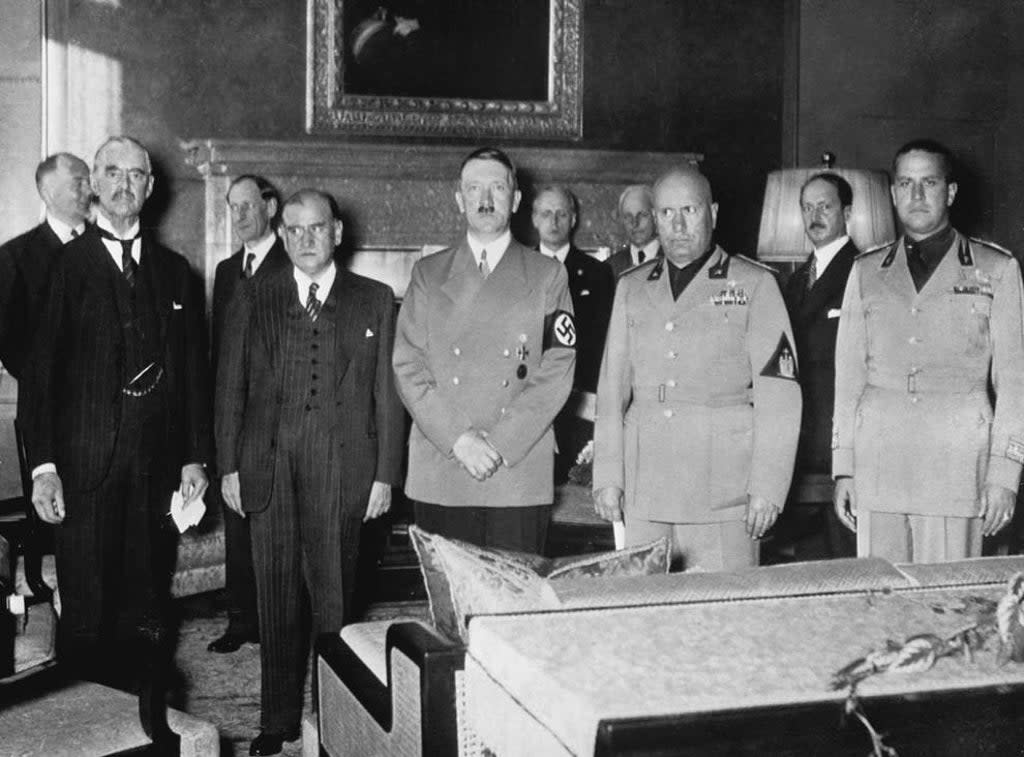What was the Munich Agreement?

- Oops!Something went wrong.Please try again later.
The Munich Agreement was a settlement between Germany, France, Italy, and the UK that ceded the Sudetenland – then part of western Czechoslovakia – to Nazi Germany on September 30, 1938.
Home to roughly three million people of German origin, the Sudeten region was of huge significance to Adolf Hitler, who had successfully annexed German-speaking Austria six months earlier as part of his expansion of the Third Reich.
The agreement came amid a febrile climate of fear and uncertainty in which Hitler made inflammatory speeches demanding that Germans in Czechoslovakia be reunited with their homeland.
While the decision broke existing military alliances between France and the Czechoslovak Republic, it was widely hailed as a means of preventing major war in Europe.
At a series of meetings in April 1938, British Prime Minister Neville Chamberlain and French Prime Minister Édouard Daladier concluded that peace could only be secured by the transfer of the Sudetenland.
Chamberlain convinced Hitler to halt all military action without further discussion while he persuaded his cabinet and the French administration to accept the results of a plebiscite – a non-compulsory referendum – in the Sudetenland.
Based on the result, a joint proposal between the UK and France was prepared stipulating that all areas with a population of more than 50 percent ethnic Sudeten Germans be handed over to Germany. Hitler then heightened his demands, saying he wanted the Sudetenland occupied by the German army and the Czechoslovaks evacuated from the area by September 28.
The Czechoslovak government was not consulted and had no choice but to accept the plan.
Before leaving Munich, Chamberlain and Hitler co-signed a paper stating their mutual desire to resolve differences through peaceful negotiation.
Chamberlain returned to jubilant crowds, telling the British public he had achieved “peace with honour. I believe it is peace for our time.”
Hitler reneged on the agreement by occupying the remainder of Czechoslovakia in March 1939, before sparking World War II with the invasion of Poland six months later.

